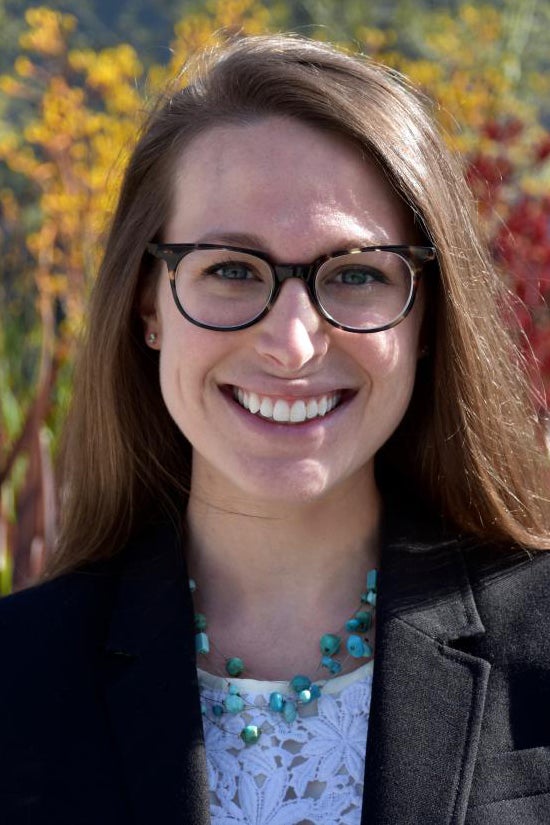The American Council of Learned Societies (ACLS) has awarded 2020 fellowships to four Stanford students who are completing doctoral degrees in anthropology, art/art history, history and philosophy in the School of Humanities and Sciences.
Now in its 14th year, the ACLS fellowship program supports promising doctoral students in the humanities and humanistic social sciences with one year of funding to support completion of a project forming the foundation of their scholarly careers. This year, 64 graduate students will be awarded up to $43,000 for their final year of dissertation research and writing. Fellows will also participate in a faculty-led job market seminar to further prepare them for postgraduate careers both within and outside of academia.
Three of the Stanford students are receiving Mellon/ACLS Dissertation Completion Fellowships, which are made possible by a grant from the Andrew W. Mellon Foundation. One Stanford student is receiving the Luce/ACLS Dissertation Fellowships in American Art, which is supported by the Henry Luce Foundation.
Dean Mohammed Chahim of Seattle, Washington, is a PhD candidate in anthropology. He said that in a time of profound uncertainty and crisis, it’s a privilege to focus on dissertation research.
“It is also an honor to be in the company of fellows around the country pursuing such fascinating projects,” Chahim said. “The fellowship will give me the time and space, as well as a supportive community, to both complete my dissertation research and begin publishing next year.”
Chahim’s dissertation is Draining the Infinite Metropolis: Engineering and the Banality of Disaster in Mexico City. It investigates Mexico City’s routine flooding, its massive drainage system and how engineers make it possible to imagine endless urban growth amid finite and increasingly strained environments.
Chahim graduated from the University of Washington with bachelor’s degrees in civil and environmental engineering and international development and social change, an interdisciplinary program of study that he designed.
“I worked for a time as an environmental engineer before deciding that what I really wanted to do was study what engineering did in the world, and how engineering practice could be retooled for social and environmental justice,” he said. “That’s how I ended up in anthropology.”
Caroline Culp was born and raised in Norman, Oklahoma, to a family of artists. She is currently a PhD candidate in the Department of Art and Art History.
“Being awarded the prestigious Luce/ACLS Dissertation Fellowship in American Art is an honor and a delight,” Culp said. “I am thrilled not only to have this year of funding but also to be joining the ranks of distinguished alumni whose work has reshaped the field of American art over the course of the past two decades.”
Culp’s research focuses on the art and material culture of Colonial and Early National America, interests culminating with her research on the 18th-century portraitist John Singleton Copley (1738-1815). Her dissertation, The Memory of Copley: Afterlives of the American Portrait, 1765-1925, traces the reception and impact of Copley’s hyper-realistic portraits from the birth of the United States to the decades following World War I.
Culp earned bachelor’s degrees in art history and history at Wake Forest University. She will complete her doctoral studies at Stanford next year.
“With my PhD, I will pursue a career in the curation of American art, with the goal of sharing the presence and power of art with diverse audiences through creative and challenging exhibitions,” she said.
Roy Lee of San Francisco is a PhD candidate in philosophy. The Mellon/ACLS fellowship will support his dissertation and research on Aristotle’s approach to ethics.
“I’m grateful to have more time to spend on the writing process as I finish my dissertation,” Lee said. “The ACLS/Mellon fellowship gives me time to work on crafting my arguments more carefully and to begin preparing results from my research for publication.”
Lee’s dissertation, The Ethical Theory of Aristotle’s Eudemian Ethics, examines Aristotle’s ethical treatise, Eudemian Ethics, which is often dismissed as inferior to his more famous treatise, Nicomachean Ethics.
“My research reconstructs the arguments and views of the Eudemian Ethics to see how much Aristotle changed his mind between the two works, and what lessons we can take forward to inform ethical debates that are happening now,” Lee said.
Lee earned a bachelor’s degree in philosophy at Yale University. He will complete his doctoral studies in 2021.
Alastair Su of Singapore is a fifth-year PhD candidate in history. He said this award will help him complete his dissertation on the global opium trade.
“I know that the ACLS supports research that speaks to a broad scholarly audience; I feel affirmed that my work has been selected for its potential to breach disciplinary boundaries on such an urgent issue,” Su said.
Su’s dissertation is Capitalism and Opium: The Transpacific Drug Economy, 1804-1881. It explores the trading of opium as an addictive commodity and global capital between China and the United States, which contributed to a flourishing transpacific economy.
Su earned a bachelor’s degree in history from Harvard College and spent a year working as a research associate at Harvard Business School before starting his PhD at Stanford. He specializes in the historical evolution of the U.S. political economy, with a focus on slavery and abolition, U.S. imperialism, drug addiction, Chinese migration and the Pacific world.



